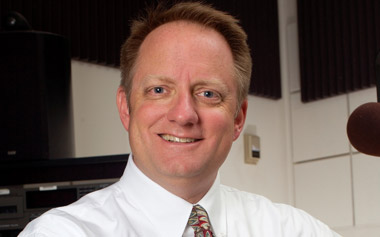For stage actors, the standard demarcation between professional and amateur is membership in Actors' Equity Association. While you can be paid for acting without being in Equity—and in some cases vice versa—the union is the accepted mark of those who are making, or at least trying to make, a living on the stage.
Two Valley theaters operate under Equity contracts that go beyond one-shot "guest artist" or "special appearance" arrangements. Northampton's New Century Theatre and the Majestic Theater in West Springfield both make a point of casting local talent as well as out-of-town artists, rather than drawing largely from New York and Boston like the professional companies in Hartford and the Berkshires.
The four Valley-based Equity actors I profiled last week work frequently at one or both theaters. All can testify to the upswings and downsides of being an Equity actor in a largely non-Equity market.
Jeannine Haas has often found it frustrating. "I've constantly been in the position of bargaining with producers" for a full Equity contract, she says. "In some ways it's a little prohibitive. Non-Equity actors think the Equity actor is making so much money, when in fact there are times I've actually made less than other actors in the cast, because there's money going toward dues, the union's health plan premiums, and so forth."
Some of that frustration spurred Haas to launch her own theater company, Pauline Productions: "I thought, 'I spend so much time trying to get work and negotiating for it, why don't I just make it?' So now I spend the same amount of energy, and I can do the shows I want to do."
Van Farrier doesn't much like the "professional/amateur" distinction. "I've worked with a lot of actors I would call professional in every sense of the word," he says. "They just aren't fortunate yet, at this point in their careers, to have that Equity card." (Union membership is earned by accumulating "points" working in a participating theater, or by being hired on an Equity contract in an Equity theater.)
Farrier himself missed two opportunities to join Equity before getting his card in summer theater here in the Valley. The first time, he recalls, "I was 16 or 17, and I was talked out of it: 'You're too young, you won't work, once you get that card you can't take non-Equity jobs.'" In the 1980s he was cast in a show bound for Broadway, which would have qualified him, but the show closed before making it uptown.
"Now I tell my students not to wait," he says. "If you were to work any other job you wouldn't say, 'Oh, don't pay me as much as everybody else.' No, as an actor you want to get paid and compensated and protected by a union as soon as you can."
Steve Henderson, who joined Equity only last year, sees his career as a series of "rungs on the ladder," beginning with community theater in Springfield and moving to writing and performing with the comedy troupe Disturbed Theater, then to a long-running relationship with the Majestic, which presented his one-man play Jerry Atric and its sequel Jerry and Ed, both of which he wrote and performed.
For Henderson, going pro "wasn't an easy decision, but when people ask 'Are you Equity?' if I say no, all the professionals have this little reaction. You can see them glaze over a little bit, and it's like, okay, they're not going to take me as seriously."
Sandra Blaney has also noticed that glazed look, along with a certain bias in favor of New York-based actors. She recalls a conversation with the director of a Berkshire summer theater: "She said, 'Where do you live?' and I said 'Western Mass.,' and she said, 'You should move to New York.'
"I hate that there's a stigma attached to not living in New York. People advise having a 212 or 917 number and getting a P.O. box so it seems like you're in the city."
These four actors have chosen to live and work primarily in the Valley because they value the quality of life and don't value the hassle and hustle of trying to make it in the city.
"There's a certain desperation that comes with this profession sometimes," Blaney says. "I've worked with actors from the city who don't really invest in the production, in getting to know the people, because their mind is already on the next job. It diminishes the magic of what we do."
Henderson, too, is comfortable on the career rung he has achieved so far. "Am I successful? Well, I'm more successful than some, and less successful than many. But at the end of the day—'What did your dad do when he was alive?' 'Well, he was a professional actor and playwright.' That feels pretty damn good."



